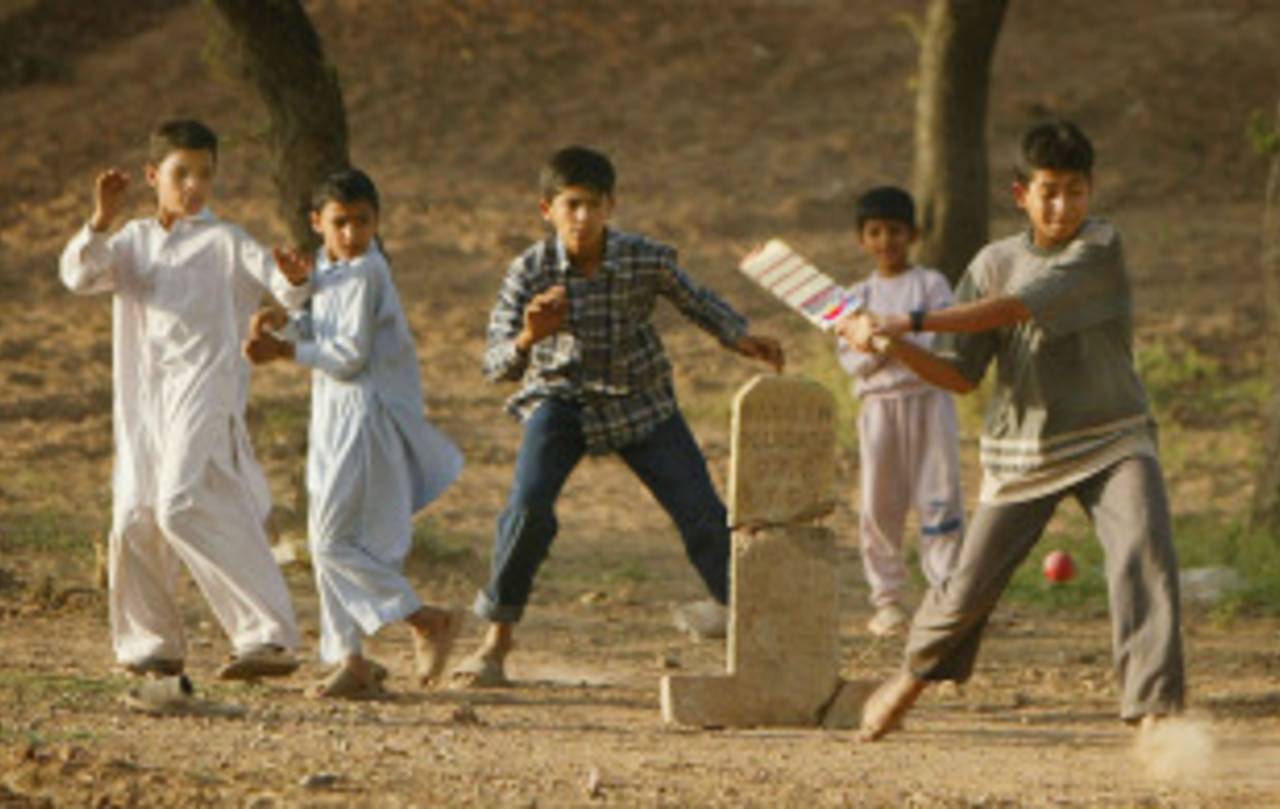The most pleasant of memories: My highest score
In my earlier post on magical numbers, I forgot to note one number of especial personal importance: 38*
Samir Chopra
25-Feb-2013

File photo: The pitch we batted on was a dust-bowl and the opposition bowlers were a rather threatening, if skinny, bunch of lads • AFP
In my post on magical numbers a few weeks ago, I forgot to note one number of especial personal importance: 38*, the highest score I have ever made in any form of cricket that involved an actual, hard, potentially bone-breaking cricket ball. I've scored centuries in air-cricket (a fascinating species of the game that I will detail in a later post. Hint: think air-guitars), double-centuries in book-cricket and, of course, triple-centuries in rapid-eye-movement-sleep-cricket.
But when it came to encounters staged outdoors, involving human beings, willow and leather, 38 is all I have to show folks. I've never had the pleasure of raising my bat to acknowledge the applause of my admiring team-mates from the sidelines, or even been mobbed by ecstatic spectators running onto the ground with garlands of marigolds, or perhaps a glass of sweet, cold, refreshing lassi.
For all of that, my 38 still gives me great pleasure. I scored it during a four-innings game in park cricket, which is a bit of a rarity in itself. And to make matters especially sweet, I scored it in the third innings of the game during the course of a partnership with a lad who scored 51, and helped set a target that proved a little too difficult for our opponents. The pitch we batted on was a dust-bowl (I'm well aware that such descriptions are entirely redundant when describing any cricket played in India, but I might as well leave it in there in case posterity decides to send some recognition my way), and the opposition bowlers were a rather threatening, if skinny, bunch of lads from a school grade above ours.
I don't remember if there were any spectators other than the usual gaggle of retired civil servants, dreamy-eyed newly-married couples, abandoned toddlers, stray dogs and, perhaps, the odd escaped lunatic or two (scratch that, those were just especially cranky retired civil servants). But it didn't matter. Every shot I hit evoked an internal buzzing reminiscent of a roaring crowd, every scampered single brought squeals of delight from my inner child and, quite possibly, the grudging respect of my opponents.
The end, when it came, was not because my batting had succumbed to the wiles of the opposing bowlers. Rather, we had to declare; time was running out, the darkness of a Delhi winter was not going to be delayed for too long and we still had to bowl the opposition out. More importantly, our parents might deny us sustenance if we turned up, yet again, late from the park, our homework assignments lying untouched in pristine innocence in our schoolbags.
So we walked off the field, undefeated and triumphant. I'm pretty sure none of the opposition fielders came running over to shake my hand as I left the ground. But it didn't matter. At that moment, I still felt euphoric about not having disgraced myself, as was my wont, during a batting performance. Had I known I would never make fifty in a game of cricket that involved a leather ball, I might have wanted to bat on a little longer.
Like so many other things in life, though, I had little idea of what lay ahead. I would have to content myself, as I do now, with wistful looks at the already transpired, trusting that the sustenance afforded by its memory was pleasure enough.
Samir Chopra lives in Brooklyn and teaches Philosophy at the City University of New York. He tweets here